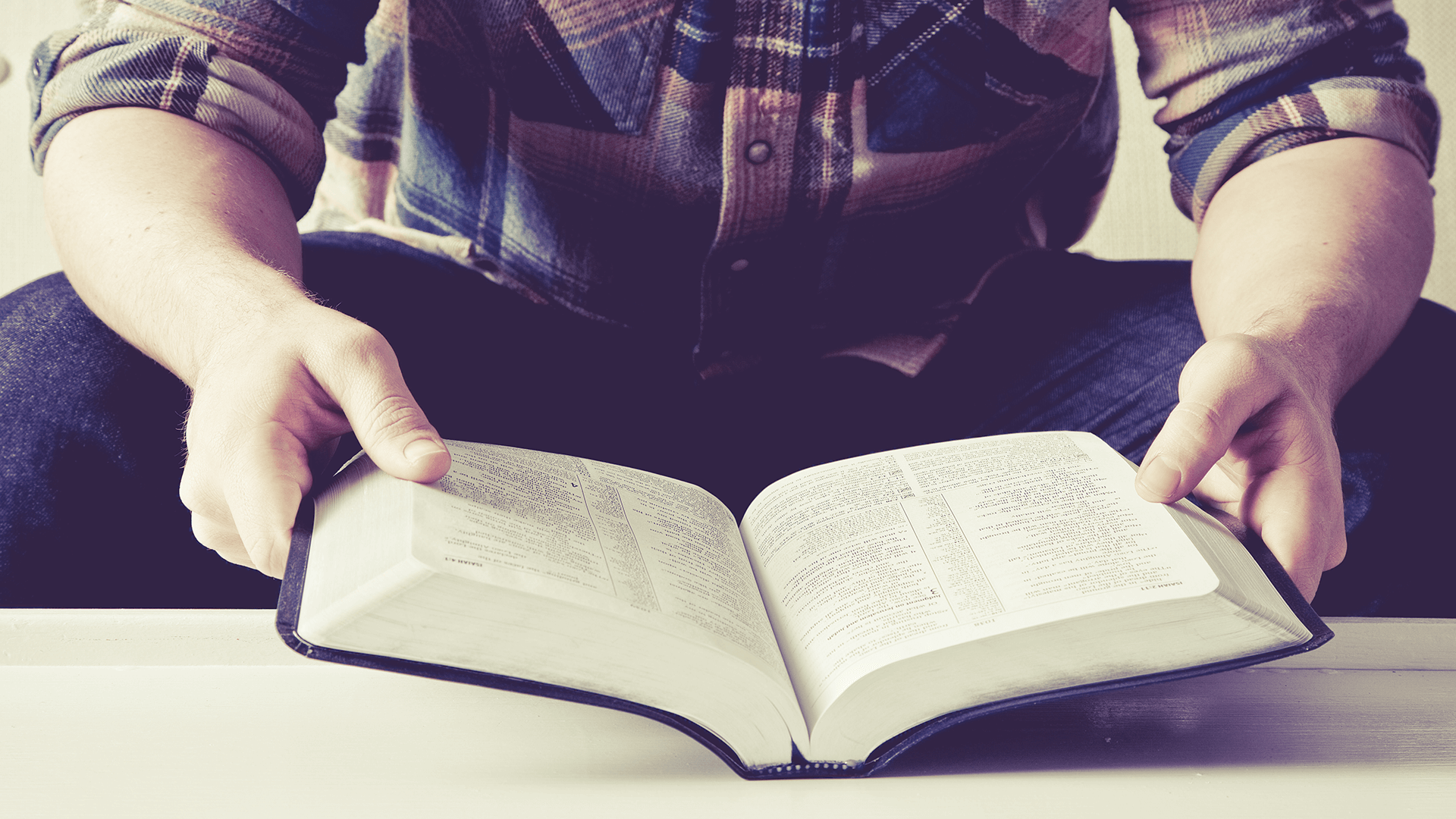July 30th, 2022
July 30, 2022

Today's Reading:
New Testament & Psalms Plan: Acts 22:22–23:11, Psalm 89:6–11
Entire Bible Plan: Acts 22:22–23:11, Psalm 89:6–11, 2 Chronicles 33–34
Download NT & Psalms Plan Download Entire Bible Plan
Paul's Roman Protection
They listened to him up to this point. Then they raised their voices, shouting, "Wipe this man off the face of the earth! He should not be allowed to live!"
As they were yelling and flinging aside their garments and throwing dust into the air, the commander ordered him to be brought into the barracks, directing that he be interrogated with the scourge to discover the reason they were shouting against him like this. As they stretched him out for the lash, Paul said to the centurion standing by, "Is it legal for you to scourge a man who is a Roman citizen and is uncondemned?"
When the centurion heard this, he went and reported to the commander, saying, "What are you going to do? For this man is a Roman citizen."
The commander came and said to him, "Tell me, are you a Roman citizen?"
"Yes," he said.
The commander replied, "I bought this citizenship for a large amount of money."
"But I was born a citizen," Paul said.
So those who were about to examine him withdrew from him immediately. The commander too was alarmed when he realized Paul was a Roman citizen and he had bound him.
Paul before the Sanhedrin
The next day, since he wanted to find out exactly why Paul was being accused by the Jews, he released him and instructed the chief priests and all the Sanhedrin to convene. He brought Paul down and placed him before them.
Paul looked straight at the Sanhedrin and said, "Brothers, I have lived my life before God in all good conscience to this day." The high priest Ananias ordered those who were standing next to him to strike him on the mouth. Then Paul said to him, "God is going to strike you, you whitewashed wall! You are sitting there judging me according to the law, and yet in violation of the law are you ordering me to be struck?"
Those standing nearby said, "Do you dare revile God's high priest?"
"I did not know, brothers, that he was the high priest," replied Paul. "For it is written, You must not speak evil of a ruler of your people." When Paul realized that one part of them were Sadducees and the other part were Pharisees, he cried out in the Sanhedrin, "Brothers, I am a Pharisee, a son of Pharisees. I am being judged because of the hope of the resurrection of the dead!" When he said this, a dispute broke out between the Pharisees and the Sadducees, and the assembly was divided. For the Sadducees say there is no resurrection, and neither angel nor spirit, but the Pharisees affirm them all.
The shouting grew loud, and some of the scribes of the Pharisees' party got up and argued vehemently, "We find nothing evil in this man. What if a spirit or an angel has spoken to him?"
When the dispute became violent, the commander feared that Paul might be torn apart by them and ordered the troops to go down, take him away from them, and bring him into the barracks. The following night, the Lord stood by him and said, "Have courage! For as you have testified about me in Jerusalem, so it is necessary for you to testify in Rome."
Scripture quotations have been taken from the Christian Standard Bible®, Copyright © 2017 by Holman Bible Publishers. Used by permission. Christian Standard Bible® and CSB® are federally registered trademarks of Holman Bible Publishers.
Who among the heavenly beings is like the Lord?
God is greatly feared in the council of the holy ones,
more awe-inspiring than all who surround him.
Lord God of Armies,
who is strong like you, Lord?
Your faithfulness surrounds you.
You rule the raging sea;
when its waves surge, you still them.
You crushed Rahab like one who is slain;
you scattered your enemies with your powerful arm.
The heavens are yours; the earth also is yours.
The world and everything in it—you founded them.
Scripture quotations have been taken from the Christian Standard Bible®, Copyright © 2017 by Holman Bible Publishers. Used by permission. Christian Standard Bible® and CSB® are federally registered trademarks of Holman Bible Publishers.
Judah's King Manasseh
Manasseh was twelve years old when he became king, and he reigned fifty-five years in Jerusalem. He did what was evil in the Lord's sight, imitating the detestable practices of the nations that the Lord had dispossessed before the Israelites. He rebuilt the high places that his father Hezekiah had torn down and reestablished the altars for the Baals. He made Asherah poles, and he bowed in worship to all the stars in the sky and served them. He built altars in the Lord's temple, where the Lord had said, "Jerusalem is where my name will remain forever." He built altars to all the stars in the sky in both courtyards of the Lord's temple. He passed his sons through the fire in Ben Hinnom Valley. He practiced witchcraft, divination, and sorcery, and consulted mediums and spiritists. He did a huge amount of evil in the Lord's sight, angering him.
Manasseh set up a carved image of the idol, which he had made, in God's temple that God had spoken about to David and his son Solomon: "I will establish my name forever in this temple and in Jerusalem, which I have chosen out of all the tribes of Israel. I will never again remove the feet of the Israelites from the land where I stationed your ancestors, if only they will be careful to do all I have commanded them through Moses—all the law, statutes, and judgments." So Manasseh caused Judah and the inhabitants of Jerusalem to stray so that they did worse evil than the nations the Lord had destroyed before the Israelites.
Manasseh's Repentance
The Lord spoke to Manasseh and his people, but they didn't listen. So he brought against them the military commanders of the king of Assyria. They captured Manasseh with hooks, bound him with bronze shackles, and took him to Babylon. When he was in distress, he sought the favor of the Lord his God and earnestly humbled himself before the God of his ancestors. He prayed to him, and the Lord was receptive to his prayer. He granted his request and brought him back to Jerusalem, to his kingdom. So Manasseh came to know that the Lord is God.
After this, he built the outer wall of the city of David from west of Gihon in the valley to the entrance of the Fish Gate; he brought it around Ophel, and he heightened it considerably. He also placed military commanders in all the fortified cities of Judah.
He removed the foreign gods and the idol from the Lord's temple, along with all the altars that he had built on the mountain of the Lord's temple and in Jerusalem, and he threw them outside the city. He built the altar of the Lord and offered fellowship and thanksgiving sacrifices on it. Then he told Judah to serve the Lord, the God of Israel. However, the people still sacrificed at the high places, but only to the Lord their God.
Manasseh's Death
The rest of the events of Manasseh's reign, along with his prayer to his God and the words of the seers who spoke to him in the name of the Lord, the God of Israel, are written in the Events of Israel's Kings. His prayer and how God was receptive to his prayer, and all his sin and unfaithfulness and the sites where he built high places and set up Asherah poles and carved images before he humbled himself, they are written in the Events of Hozai. Manasseh rested with his ancestors, and he was buried in his own house. His son Amon became king in his place.
Judah's King Amon
Amon was twenty-two years old when he became king, and he reigned two years in Jerusalem. He did what was evil in the Lord's sight, just as his father Manasseh had done. Amon sacrificed to all the carved images that his father Manasseh had made, and he served them. But he did not humble himself before the Lord like his father Manasseh humbled himself; instead, Amon increased his guilt.
So his servants conspired against him and put him to death in his own house. The common people killed all who had conspired against King Amon, and they made his son Josiah king in his place.
Judah's King Josiah
Josiah was eight years old when he became king, and he reigned thirty-one years in Jerusalem. He did what was right in the Lord's sight and walked in the ways of his ancestor David; he did not turn aside to the right or the left.
Josiah's Reform
In the eighth year of his reign, while he was still a youth, Josiah began to seek the God of his ancestor David, and in the twelfth year he began to cleanse Judah and Jerusalem of the high places, the Asherah poles, the carved images, and the cast images. Then in his presence the altars of the Baals were torn down, and he chopped down the shrines that were above them. He shattered the Asherah poles, the carved images, and the cast images, crushed them to dust, and scattered them over the graves of those who had sacrificed to them. He burned the bones of the priests on their altars. So he cleansed Judah and Jerusalem. He did the same in the cities of Manasseh, Ephraim, and Simeon, and as far as Naphtali and on their surrounding mountain shrines. He tore down the altars, and he smashed the Asherah poles and the carved images to powder. He chopped down all the shrines throughout the land of Israel and returned to Jerusalem.
Josiah's Repair of the Temple
In the eighteenth year of his reign, in order to cleanse the land and the temple, Josiah sent Shaphan son of Azaliah, along with Maaseiah the governor of the city and the court historian Joah son of Joahaz, to repair the temple of the Lord his God.
So they went to the high priest Hilkiah and gave him the silver brought into God's temple. The Levites and the doorkeepers had collected it from Manasseh, Ephraim, and from the entire remnant of Israel, and from all Judah, Benjamin, and the inhabitants of Jerusalem. They gave it to those doing the work—those who oversaw the Lord's temple. They gave it to the workmen who were working in the Lord's temple, to repair and restore the temple; they gave it to the carpenters and builders and also used it to buy quarried stone and timbers—for joining and making beams—for the buildings that Judah's kings had destroyed.
The men were doing the work with integrity. Their overseers were Jahath and Obadiah, Levites from the Merarites, and Zechariah and Meshullam from the Kohathites as supervisors. The Levites were all skilled with musical instruments. They were also over the porters and were supervising all those doing the work task by task. Some of the Levites were secretaries, officers, and gatekeepers.
The Recovery of the Book of the Law
When they brought out the silver that had been deposited in the Lord's temple, the priest Hilkiah found the book of the law of the Lord written by the hand of Moses. Consequently, Hilkiah told the court secretary Shaphan, "I have found the book of the law in the Lord's temple," and he gave the book to Shaphan.
Shaphan took the book to the king, and also reported, "Your servants are doing all that was placed in their hands. They have emptied out the silver that was found in the Lord's temple and have given it to the overseers and to those doing the work." Then the court secretary Shaphan told the king, "The priest Hilkiah gave me a book," and Shaphan read from it in the presence of the king.
When the king heard the words of the law, he tore his clothes. Then he commanded Hilkiah, Ahikam son of Shaphan, Abdon son of Micah, the court secretary Shaphan, and the king's servant Asaiah, "Go and inquire of the Lord for me and for those remaining in Israel and Judah, concerning the words of the book that was found. For great is the Lord's wrath that is poured out on us because our ancestors have not kept the word of the Lord in order to do everything written in this book."
Huldah's Prophecy of Judgment
So Hilkiah and those the king had designated went to the prophetess Huldah, the wife of Shallum son of Tokhath, son of Hasrah, keeper of the wardrobe. She lived in Jerusalem in the Second District. They spoke with her about this.
She said to them, "This is what the Lord God of Israel says: Say to the man who sent you to me, 'This is what the Lord says: I am about to bring disaster on this place and on its inhabitants, fulfilling all the curses written in the book that they read in the presence of the king of Judah, because they have abandoned me and burned incense to other gods so as to anger me with all the works of their hands. My wrath will be poured out on this place, and it will not be quenched.' Say this to the king of Judah who sent you to inquire of the Lord: 'This is what the Lord God of Israel says: As for the words that you heard, because your heart was tender and you humbled yourself before God when you heard his words against this place and against its inhabitants, and because you humbled yourself before me, and you tore your clothes and wept before me, I myself have heard'—this is the Lord's declaration. 'I will indeed gather you to your ancestors, and you will be gathered to your grave in peace. Your eyes will not see all the disaster that I am bringing on this place and on its inhabitants.'"
Then they reported to the king.
Affirmation of the Covenant by Josiah and the People
So the king sent messengers and gathered all the elders of Judah and Jerusalem. The king went up to the Lord's temple with all the men of Judah and the inhabitants of Jerusalem, as well as the priests and the Levites—all the people from the oldest to the youngest. He read in their hearing all the words of the book of the covenant that had been found in the Lord's temple. Then the king stood at his post and made a covenant in the Lord's presence to follow the Lord and to keep his commands, his decrees, and his statutes with all his heart and with all his soul in order to carry out the words of the covenant written in this book.
He had all those present in Jerusalem and Benjamin agree to it. So all the inhabitants of Jerusalem carried out the covenant of God, the God of their ancestors.
So Josiah removed everything that was detestable from all the lands belonging to the Israelites, and he required all who were present in Israel to serve the Lord their God. Throughout his reign they did not turn aside from following the Lord, the God of their ancestors.



Login To Leave Comment